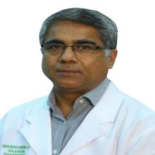About Gastroenterology
Gastroenterology is one of the branches of medical science that mainly deals with the digestive system and its disorders. The digestive system of humans consists of a long tube called the gastrointestinal (GI) tract, comprising the oesophagus, where the food travels down through it; the stomach, where the food gets broken down with the help of digestive juices; small intestine, where the most of the digestion process takes place and absorption of nutrients into the bloodstream takes place; and large intestine, where watery waste is absorbed to form faeces. It also comprises accessory organs, such as the pancreas, which releases enzymes for digestion; the gall bladder, where a green fluid called bile is released to break down fatty foods; and the liver, where bile is stored and processes nutrients. The digestive system functions to move food material through the GI tract (peristalsis), break down the food (digestion), absorb nutrients for use throughout the body, and remove waste from the body (defecation). So, any illness or ailment that affects your digestive system and needs to be treated is the cause of the digestive system’s failure to perform as intended. Gastroenterologists are physicians who specialise in treating disorders or diseases of the digestive system. This article discusses gastroenterology, its aims and scopes in medical science, gastroenterologists, gastro issues and disorders, and therapies.
What is gastroenterology?
Gastroenterology is a field of medicine dedicated to diagnosing, treating, and preventing conditions affecting your digestive system. It is one of the prominent branches of medical science. It delivers authoritative coverage of clinical, translational, and basic studies of all aspects of the digestive system.
Gastroenterologists
A gastroenterologist is a medical doctor or physician who specialises in conditions affecting your digestive system. They are responsible for treating all kinds of diseases and conditions related to the digestive system. A paediatric gastroenterologist takes care of the GI conditions in growing children. Gastroenterologists mainly focus on treating the stomach and intestine along with the other organs (‘gastro’ means stomach, ‘entero’ means intestine, and ‘ologist’ means specialist). Gastroenterologists, when compared to general physicians, are more likely to make accurate diagnoses, identify problems sooner and treat the complications with fewer complications of any organ related to the digestive system. They conduct deeper GI research, examinations, and procedures.
Which diseases are treated by gastroenterologists?
Most common conditions of the digestive system treated by gastroenterologists include:
- Irritable bowel syndrome (IBS): It is a condition affecting the digestive system, especially the intestines. It causes abdominal pain and cramps, diarrhoea, constipation, or sometimes both; causes tissue damage of the GI tract; and results in the increased risk of colon cancer. IBS patients have normal bowel movements on some days and abnormal on others. The main symptoms of IBS are pain in the gut, abdominal pain, excess gas and bloating, constipation, diarrhoea, and the presence of mucus in the faeces.
This condition is divided into three categories:
- IBS with constipation (IBS-C): It causes severe constipation with hard and lumpy faeces.
- IBS with diarrhoea (IBS-D): It causes diarrhoea with loose and watery faeces.
- IBS with mixed bowel habits (IBS-M): It causes both constipation and diarrhoea.
Treatment: Medications like probiotics, laxatives, and anti-diarrheal are given.
- Inflammatory bowel disease (IBD): IBD is a chronic inflammation of the GI tract. It is a lifelong illness where there is no permanent treatment. The symptoms are sometimes mild or severe. It includes lower abdominal pain, blood in stool, chronic diarrhoea, tiredness, and weight loss. It is of two kinds:
- Crohn’s disease: It causes ulcers and sores in the GI tract and any part of GI tract. It mainly develops in the small intestine and the upper part of the large intestine.
- Ulcerative colitis: It causes sores, ulcers, and swelling in the large intestine, which can later spread to the rectum and colon.
- Celiac disease: It is an autoimmune disorder of the GI tract characterised by an abnormal reaction of the body to protein and gluten. Gluten in the digestive system triggers the immune system to produce antibodies. These antibodies damage the small intestine, which impairs its ability to absorb nutrition from food, leading to malnutrition. It mainly affects the small intestine, where most of the nutrients are absorbed from the food. During celiac conditions, gluten in the small intestine triggers the immune system, which sends inflammatory cells and antibodies to destroy the gluten molecules. These antibodies damage the mucosal layer of the small intestine. The symptoms may include stomach pain, bloatted stomach, constipation, fatty stools, weakness, cold hands, weight loss, and flatulence.
- Stomach ulcers: It refers to open sores in the stomach lining. These are very common and are easily treatable, but they can become serious if they go too long without treatment. Some ulcers bleed, which can lead to significant blood loss. Some can cause a hole in the stomach. These ulcers are a kind of peptic ulcer. The common symptoms include acid reflux, heartburn, nausea, vomiting, bloating, gas pain, paleness, and dizziness.
- Appendicitis: It is characterised by acute pain in the lower abdomen. The appendix is a small, tubular pouch situated in the lower right end of the large intestine. Faeces, which move through the large intestine, block the appendix, leading to inflammation. This leads to the swelling of the appendix, and it bursts out, causing pain. When it bursts out, it spreads bacteria from inside the bowels throughout the abdominal cavity, and it can further spread in the bloodstream, leading to life-threatening complications. It is of two kinds: Acute appendicitis, which goes away after minor treatment, and chronic appendicitis, which comes back even after the treatment and requires a long therapy. The symptoms include fever, loss of appetite, malaise, swollen belly, bowel paralysis, and diarrhoea.
- Pancreatitis: It is an inflammation of the pancreas, causing swelling and pain in the stomach. The pancreas is situated between the stomach and the spine. It is involved in digestion and regulating the blood sugar. Pancreatitis is of two types: Acute and chronic pancreatitis. The symptoms include abdominal pain, nausea, vomiting, tachycardia, fever, indigestion, weight loss, and loss of appetite. Common Causes are alcohol, gall bladder stones, drugs etc.
- Hiatal hernias: This condition occurs when the stomach pushes up through an opening in the diaphragm into the chest. Hernia is caused when any organ or tissue pushes through a weakness in the tissue barrier. These are common conditions of the GI tract. Hernia is of four types:
- Type 1: This type is called sliding hiatal hernia, where a part of the oesophagus slides up through the widened hiatus at times and then slides back down.
- Type 2: This type is called paraesophageal hiatal hernias, where the upper part of the stomach pushes up through the hiatus alongside the oesophagus, forming a bulge next to it. It is also called a rolling hiatal hernia.
- Type 3: It is a combination of types 1 and 2.
- Type 4: It is a rare condition where hernia involves the stomach, intestine, spleen, and pancreas.
Diagnostic techniques used in gastroenterology
Gastroenterologists treat conditions via physical examinations and follow-up tests like blood, stool, and imaging tests. In complex conditions, they perform imaging tests to take pictures of the relevant organs from outside. Many diagnostic techniques are used for image tests. Some of them are:
- Endoscopy: It is a technique where gastroenterologists look inside your body with the help of an endoscope (a small camera fixed at the end of a long, thin, flexible tube), which is inserted through your mouth. It helps them get a more detailed view and see how things are functioning and what might be the cause of the disease. Sometimes, via endoscopy they can also take a tissue sample and perform minor interventions with tiny tools. They can relieve blockages, open up narrowed channels, stop bleeding, and remove tumours through an endoscope. Endoscopy includes a few procedures, such as:
- Upper GI endoscopy: It is the examination of the upper GI tract from the throat down through the stomach and upper small intestine.
- Colonoscopy: It is an examination of the lower GI tract.
- Endoscopic ultrasound: It is the upper and lower GI endoscopy with an ultrasound wand attached, which helps visualise the biliary system.
- Endoscopic retrograde cholangiopancreatography (ERCP): It is an upper endoscopy using special scope that extends into the bile ducts and takes fluoroscopic X-rays of the biliary system, and perform interventions if required.
- Polypectomy: It is a process of removing polyps from the stomach or intestine during endoscopy.
- Imaging tests: Imaging techniques like CT, MRI, and ultrasound scans are performed to visualise internal organs and tissues.
Benefits of early detection and treatment
GI disorders are extremely uncomfortable and can be quite dangerous if not treated promptly. It is crucial to detect and treat GI disorders as soon as possible by consulting the right gastroenterologists. Untreated GI issues can lead to many serious problems like dehydration, malnutrition, and serious infections. Sometimes, GI conditions are a sign of underlying health problems. For instance, Crohn’s disease is a form of inflammatory bowel disease that causes severe abdominal pain and weight loss. If it is not treated at the right time, it leads to life-threatening complications. Hence, it is very important to consult gastroenterologists if you are experiencing any symptoms such as abdominal pain, vomiting, diarrhoea, decreased appetite, jaundice etc. Early detection and treatment can help avert future major issues. Some of the major benefits of early detection of GI issues are:
- Improved quality of life: GI conditions significantly impact a person’s quality of life. Many symptoms, like abdominal pain, weight loss, constipation, and bloating, can be very uncomfortable and disruptive. Early treatment helps manage these symptoms and improve the overall quality of life.
- Prevention of complications: GI disorders sometimes might lead to many other life-threatening complications. For instance, GERD can lead to oesophageal rupture, which is a narrowing of the oesophagus, resulting in difficulty in swallowing food. IBD results in the formation of scar tissue, resulting in bowel obstruction.
- Better management of chronic conditions: There are many chronic conditions of the GI tract, such as IBD and IBS, that have no permanent treatment, but early detection and treatments can help manage the disease.
- Cost-effective: Early detection can be cost-effective in the long run. Delaying treatments can lead to the need for more complex procedures and advanced medications to treat, which can further increase the cost.
What to expect when consulting a gastroenterologist?
When you are consulting a gastroenterologist, you can expect a detailed examination of your digestive system’s health. Your initial interaction will begin with collecting all your medical information from your current complaints, past medical history, past medication history, any previous surgeries, and any existing medical conditions that you are suffering from. Along with these, the gastroenterologist will focus on your dietary habits, social habits, and bowel movements. The most common visit to a gastroenterologist includes abdominal pain, bloating, loose stools, constipation, acid reflux, and unexplainable weight loss.
Once the information is gathered, a physical examination will be carried out, where the gastroenterologist will examine your abdomen by palpating for any tenderness, swelling, or any other abnormalities. Based on the initial assessments, the gastroenterologist will advise you to get some tests done. They can be either blood tests or some scans such as ultrasound or CT scans. After the tests are done, based on the physical examination and all these tests, the gastroenterologist will diagnose your condition.
Conclusion
In conclusion, the gastroenterologist will aid in diagnosing, treating, and preventing digestive system-related issues. Through a detailed examination and assessment, these specialists address your GI diseases. However, by following their advice, one can easily prevent any gastro-related illnesses and complications.
Our Team of Experts
View allExplore blogs
View allRelated Specialities
Other Specialities
-
Explore Hospitals for
Fortis Cancer Institute, Defence Colony, New Delhi Fortis Memorial Research Institute, Gurgaon Fortis CDOC, Chirag Enclave, New Delhi Fortis Escorts Heart Institute, New Delhi Fortis Flt. Lt. Rajan Dhall Hospital, Vasant Kunj, New Delhi Fortis La Femme, Greater Kailash II, New Delhi Fortis Escorts Hospital, Faridabad Fortis Hospital, Noida Fortis Hospital, Shalimar Bagh, New Delhi Fortis Escorts Hospital, Amritsar Fortis Hospital, Mohali Fortis Escorts Hospital, Jaipur Fortis Hospital, Anandpur, Kolkata Fortis Hospital CG Road Bangalore Fortis Hospital - Greater Noida Fortis Hospital & Kidney Institute, Gariahat, Kolkata Fortis Hospital BG Road Bangalore Fortis Nagarbhavi Bangalore Fortis Hospital, Rajajinagar, Bengaluru Fortis Hospital, Richmond Road, Bengaluru Hiranandani Fortis Hospital, Vashi, Mumbai Fortis Hospital, Mulund, Mumbai Fortis Hospital, Kalyan, Mumbai Fortis Hospital, Ludhiana S L Raheja Hospital, Mumbai Fortis Hospital Mall Road, Ludhiana Fortis Hospital,Manesar,Gurugram -
Explore Doctors for by Hospital
Doctors in Fortis Cancer Institute, Defence Colony, New Delhi Doctors in Fortis Memorial Research Institute, Gurgaon Doctors in Fortis CDOC, Chirag Enclave, New Delhi Doctors in Fortis Escorts Heart Institute, New Delhi Doctors in Fortis Flt. Lt. Rajan Dhall Hospital, Vasant Kunj, New Delhi Doctors in Fortis La Femme, Greater Kailash II, New Delhi Doctors in Fortis Escorts Hospital, Faridabad Doctors in Fortis Hospital, Noida Doctors in Fortis Hospital, Shalimar Bagh, New Delhi Doctors in Fortis Escorts Hospital, Amritsar Doctors in Fortis Hospital, Mohali Doctors in Fortis Escorts Hospital, Jaipur Doctors in Fortis Hospital, Anandpur, Kolkata Doctors in Fortis Hospital CG Road Bangalore Doctors in Fortis Hospital - Greater Noida Doctors in Fortis Hospital & Kidney Institute, Gariahat, Kolkata Doctors in Fortis Hospital BG Road Bangalore Doctors in Fortis Nagarbhavi Bangalore Doctors in Fortis Hospital, Rajajinagar, Bengaluru Doctors in Fortis Hospital, Richmond Road, Bengaluru Doctors in Hiranandani Fortis Hospital, Vashi, Mumbai Doctors in Fortis Hospital, Mulund, Mumbai Doctors in Fortis Hospital, Kalyan, Mumbai Doctors in Fortis Hospital, Ludhiana Doctors in S L Raheja Hospital, Mumbai Doctors in Fortis Hospital Mall Road, Ludhiana Doctors in Fortis Hospital,Manesar,Gurugram

























